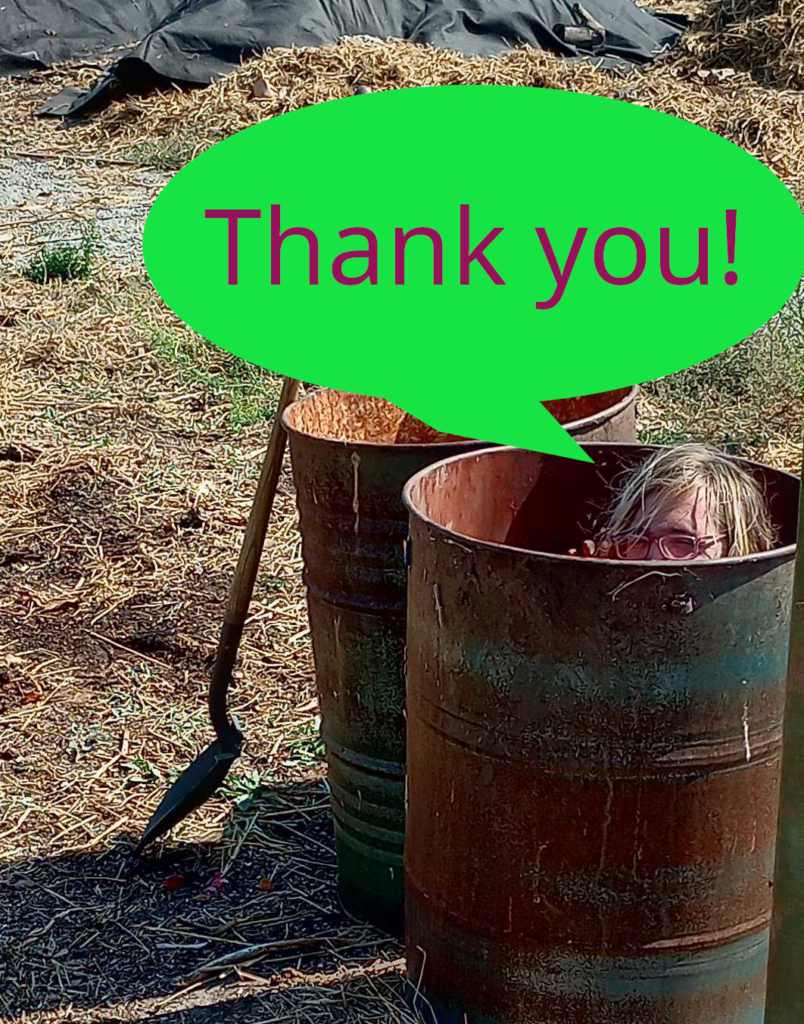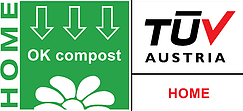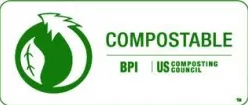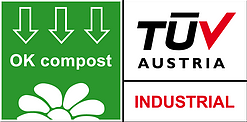YES!
- Food Scraps
- Fruits and veggies (without stickers or twist ties)
- Used tea leaves and coffee grounds
- Egg shells
- Breads, nuts, and grains
- Non-meat leftovers
- Non-coated paper products
- Paper towels and bath tissue (no human waste)
- Toilet paper rolls
- Pizza boxes torn into strips
- Torn up egg cartons without any glossy labels
- Non-glossy newsprint & other paper (We do recommend recycling clean paper over composting.)
- Other things
- Dead plants and potting dirt
- Leaves
- Sawdust and wood chips from non-treated wood
- Cool fireplace ashes
- Yard clippings not treated with pesticides


No, do not compost!
- Produce labels & stickers
- Most are made from vinyl
- This is our most challenging contaminant, because they are so common and too small to sift out.
- Glossy or coated Paper
- Most “paper” takeout containers and cups are not compostable because they are poly lined.
- Many even deceptively say “Made from 100% Recycled Paperboard” or have a “Green” certification.
- Many paper wrappers for tea bags are lined with plastic to keep moisture out.
- Paper milk, juice, and ice cream cartons are also plastic lined.
- If a paper product is moisture resistant or difficult to tear, it is most likely not compostable.
- Most “paper” takeout containers and cups are not compostable because they are poly lined.
- Plastic tea bags
- Yes, those “silken” pyramid shaped tea bags are made out of plastic. If it does not tear easily, it is plastic reinforced.
- Wet wipes
- Most are made with plastic.
- Meat & bones
- Large amounts of dairy or oil
- Urine or feces
- Products labeled “biodegradable”
- The term ‘biodegradable’ does not ensure a product does not leave behind toxic residue.
- Used condoms and tampon applicators
- We wouldn’t have written this one if it hasn’t been a problem. Please don’t dump your bathroom trash into the compost bucket.
What about compostable plastic?
Most compostable plastics require an industrial process to completely break down. In our conventional compost piles we can only handle very small amounts of certified compostable plastic because they need to be sifted out and reincorporated into new piles many times.
Alternatively, we recommend trying to reduce waste where possible:
- Re-use, recycle, and buy products made from 100% post consumer content.
- In the hierarchy of best options for waste: composting is above land-fill but below recycling.
As for certifications: this is the best to look for. It certifies that the product can be composted in conventional compost piles in a reasonable amount of time:

The following are the minimum certification that we can take for compostable plastics. If a plastic product is not certified compostable by BPI or TUV we will reject it:

